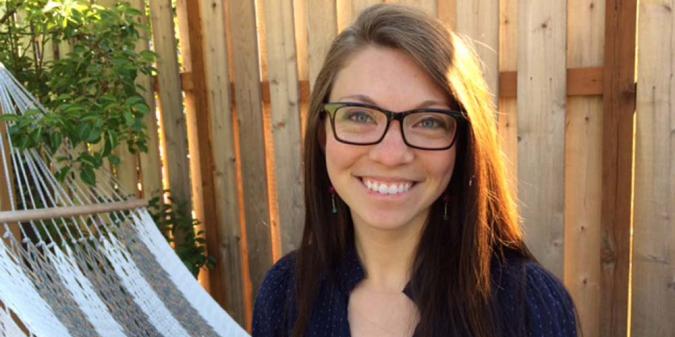Stasia Hasumi, crisis intervention support worker
HSA REPORT MAGAZINE, JUNE 2015
BY LAURA BUSHEIKIN
Stasia Hasumi, a Crisis Intervention Support Worker at the Comox Valley Transition Society, has plenty of high-stress moments at work.
As a front-line worker at a 12-bed transition house for women and children, she needs to respond moment-by-moment to the needs of women facing danger, trauma and severely disrupted lives.
"We have a 24-hour crisis line so someone may be phoning because of an assault, and needing to come in immediately for safety reasons," says Hasumi, describing the sort of challenges she may face on the job.
"Maybe someone is having a panic attack; maybe it's Mothers' Day and someone has lost custody of their children. We work 24 hours a day so there can be middle of the night support that might be disclosure of trauma or maybe just quietly sitting with a woman while she processes the events that have transpired."
"Many people find communal living challenging and when there are high numbers of women and children living together in a time of crisis, I have found that conflict resolution skills are vital," she explains.
But a time of crisis is also a time of change and growth, and for all the suffering Hasumi witnesses, what most stands out is the way the Transition House provides a calm haven where women can heal and rebuild.
"We see women really change. They come out of their shell and regain what they may have lost. Sometimes it's a completely different woman who leaves than the one who came in," says Hasumi."I'm really motivated by the resilience of the women and children."
In the midst of all the busyness and intensity, there are calm times when Hasumi can spend time cooking, baking, or knitting with the residents. "That's my favourite part of the job. I really like that this is a residential setting. It doesn't feel clinical. It's not even an office. We're in a living room, or in a kitchen doing dishes. It makes it easier to connect as people."
As well as companionship, Hasumi provides information, referrals, advocacy, and a listening ear. "We are the first stop for the woman. We connect her with resources. I might go out with her to appointments. We may be the first ones to remind a woman she is worthy and valuable. This is such an important part – reinforcing her worth.
"We know that gender-based violence happens across all races, all levels of education, and all classes, but there is still so much shame for these women. Attitudes need to change."
Hasumi was originally a doula, a position that also involved a blend of health care, personal support, and practical guidance for women. In that role, she discovered a passion for helping women faced with challenging life circumstances.
"I started working with women who couldn't afford to pay for doulas," she says. Looking to enhance her options, she enrolled in a two-year diploma program in social services at North Island College, graduating in 2012.
"I chose this field because I want to make a difference in my community. For me that means connecting to people one on one and making change on a family level. Also, over years of political activism I've developed a keen feminist lens and I wanted to work in a feminist organization. This job fits my needs perfectly, and I love my co-workers."
Hasumi also brings her activist spirit to her involvement with HSA. She is a Chief Steward, a Member At Large, and sits on the Political Action Committee. "This is my big passion," she says. "I love the strong social justice piece of the union. It fits with how I apply feminism to my life. I enjoy the opportunity to engage with a women-centred perspective on politics and activism."
Clearly, her union activism is a natural extension of her professional work, bringing gender equality closer, conversation by conversation, woman by woman, day by day.
